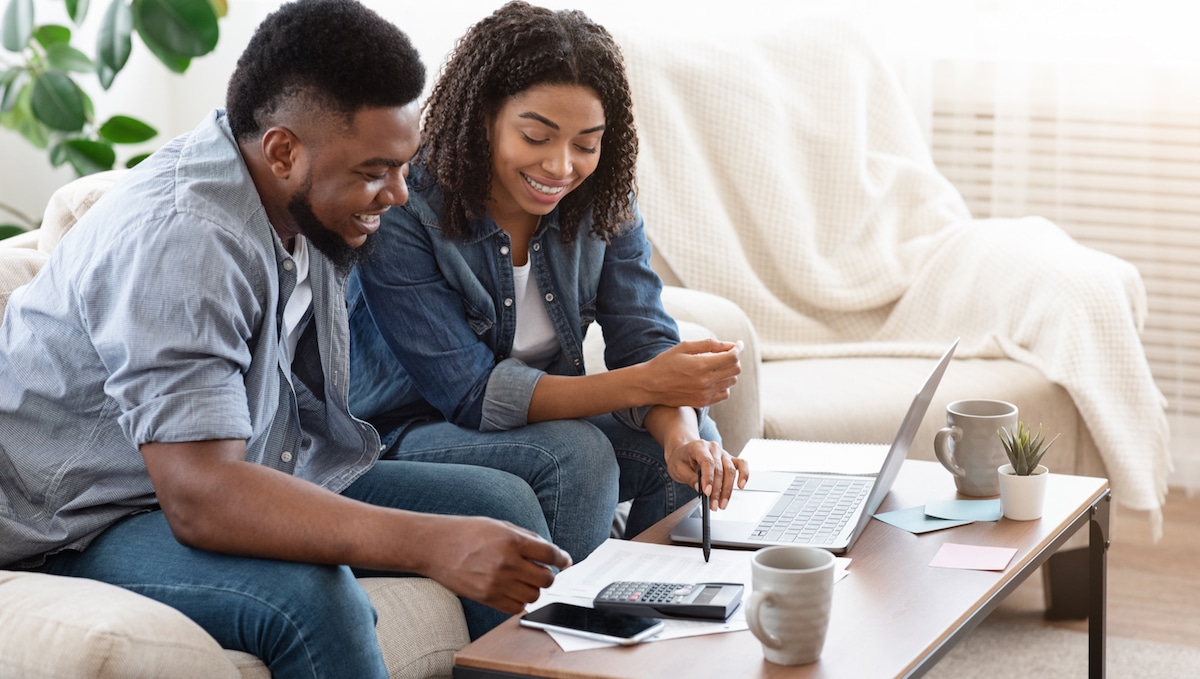
Published
Costs and drawbacks | What to do if you just bought a home | Capital gains taxes | How to avoid them | How to save when you sell | FAQ
Selling your house after one year or less usually isn’t a good financial decision, but sometimes a new job or change in financial status necessitates it.
If you need to sell after one year, here are some important things to know:
- You may have to pay capital gains taxes on your home if it has increased in value.
- You could avoid paying capital gains tax in a few situations — including job loss, divorce, death in the household, and military service.
- If you haven’t built much equity, closing costs and realtor fees will limit your potential profits.
- The best way to protect yourself financially is to connect with an experienced local realtor and minimize the fees you pay when you sell.
Can I sell my house after one year or less?
Yes, you can sell your house after 1 year or less. Technically, you could even sell it on the same day you bought it.
But selling a house after 1 year can be costly. You’ll have to pay agent commissions, closing costs, capital gains taxes, and possibly mortgage prepayment penalties. If you haven’t built much equity, you might have to cover these costs out of pocket.
Selling a house after 1 year: Costs and drawbacks
Unless you need to move immediately due to unforeseen circumstances, selling a house within a year of purchase could be a poor financial decision. When you sell a house you just bought, you’ll have a hard time breaking even — even if your home value has gone way up.
Although homes are generally a good investment in the long run, they’re expensive to buy and sell. When you buy, you usually pay around 3–5% of the total sale price in closing costs, plus your down payment. If you bought a house for $350,000, this could break down into the following.
| Costs | Price |
|---|---|
| Down payment* | $21,000 |
| Buyer closing costs** | $14,000 |
| Out of pocket costs | $35,000 |
You can expect to pay another 10% of the home price to sell. If you bought that house at $350,000 and sold it a year later for $385,000 (a substantial 10% increase in value), you’d lose up to $11,000 overall after factoring in buying and selling closing costs.
Here’s how:
| Costs | Price |
|---|---|
| Purchase price | $385,000 |
| Cost to buy | $35,000 |
| Estimated mortgage payoff* | $322,500 |
| Seller closing costs (~10%) | $38,500 |
| Final amount | -$11,000 |
Although you’d lose $11,000 overall in this example, you’d still net enough to pay off your mortgage and walk away with about $24,000 in cash. If your home value hasn’t changed much, though, you may not make enough to cover your mortgage payoff and closing costs, forcing you to dip into savings.
Let’s say you sell that same house for $355,000, or about 1.5% more than you paid for it. Not only would you lose an astonishing $44,500, but you wouldn’t even recoup your full down payment. You’d need to bring a $3,000 check to your closing just to cover selling costs.
If you do manage to make money on your sale, you might have to pay hefty taxes that will eat into your profits.
» MORE: How much are closing costs for buyers and sellers?
What to do if you just bought a house but want to sell
If you just bought a house but want to sell, you should:
- Figure out what your home is worth
- Make sure you can afford your selling costs
- Calculate your potential capital gains taxes
- Reduce your tax bill, if possible
- Save money on realtor fees when you sell
1. Figure out what your home is worth
If you’re thinking about selling your house after one year or less, you first need to determine your home’s fair market value to figure out whether you’ll make or lose money on the sale.
The best way to find out your home’s value is to consult a licensed real estate agent. They’ll perform a comparative market analysis to give you an accurate idea of your home’s value.
2. Make sure you can afford your selling costs
Next, you have to make sure you can afford to sell your home. At closing, you’ll have to pay off your remaining mortgage balance, as well as all other closing costs (usually around 10% of the sale price). If your expected sale price won’t cover these expenses, you have to bring additional funds to closing.
If your mortgage includes a prepayment penalty, your lender may charge additional fees if you pay off your loan early. This could increase your selling costs by thousands of dollars. Ask your lender if you have a mortgage prepayment penalty as early as possible, ideally before putting your home on the market.
If you’re going to buy another house right after you sell, you’ll also need enough money to cover your new down payment and buyer closing costs. This could mean dipping into your savings if you don’t walk away from your sale with much cash.
» LEARN: How much does it cost to sell a house?
3. Calculate your potential capital gains tax liability
When you sell your home for a profit after less than two years of owning it, you could be liable for capital gains tax.
Calculate your profit by subtracting the following from your estimated sale price:
- Original purchase price (including closing costs)
- Selling expenses (including closing costs)
- Home improvement costs (excluding ordinary repairs)
Your federal tax rate depends on your income and how long you owned the home. In general, you’ll pay less if you owned it for at least a year before selling.
» JUMP TO: What are capital gains taxes?
4. Reduce your tax bill
Capital gains tax can take a huge bite out of your home sale profits. Luckily, there are ways to reduce your liability — or potentially avoid capital gains tax altogether.
5. Save money on realtor fees when you sell
Saving on realtor fees ensures you walk away from your sale with as much cash as possible. These savings could help you avoid paying closing costs out of pocket and lower the burden of capital gains tax.
We recommend working with a full-service agent who charges a 1.5% listing fee, saving you thousands compared with the 3% rate most realtors charge.
What are capital gains taxes on homes?
If you’re selling your house after a year or less and make money on the sale, you may have to pay capital gain taxes on that profit. How much those taxes will cost depends on how long you owned the home, your income, filing status, any exemptions, and other factors.
Here’s how your profits are taxed differently based on how long you owned your home before selling:
- Less than a year: Earnings are considered short-term capital gains. These are taxed as ordinary income, 10–37%.
- One year or more: Earnings are considered long-term capital gains. The tax is 0%, 15%, or 20%.
- Two years or more: You can qualify for a capital gains tax exemption, up to $250,000 (individual filers) or $500,000 (joint filers).
Can you avoid capital gains tax when selling a house you just bought?
Even if you’re selling your house within two years of purchasing it, you could qualify for a tax liability exclusion for the following reasons:
- Career-related relocation
- Job loss
- Divorce or legal separation
- Death in your household
- Health-related considerations
- Your home was destroyed or condemned
- Other unforeseeable events
We recommend working with an experienced tax professional who can help you accurately determine your net profit and identify any tax exemptions.
✍️ Editor’s Note
To learn more about capital gains taxes, check out the following IRS resources:
Selling after less than a year
According to IRS guidelines, selling a house within one year of purchase makes you liable for short-term capital gains taxes on any profit. These are taxed as ordinary income, so you’ll pay the same federal tax rate on these profits — 10–37%, depending on your household income — as your wages and other earnings.
Selling after one year
If you own your house for at least one year before selling it, your profits will be taxed as long-term capital gains, which have lower tax rates than short-term capital gains.
Tax rates for long-term capital gains range from 0–20%, so delaying your sale by a few extra months could save you thousands on taxes.
For example, say you sell a house after six months and make a $50,000 profit. If you fall into the 32% income tax bracket, you could owe $16,000 in short-term capital gains tax, plus any state taxes.
If you wait until the one-year mark instead, you’d likely qualify for a long-term capital gains tax rate of 15%. Paying 15% instead of 32% would save you $8,500.
Selling after two years
You can usually avoid paying capital gains taxes entirely by living in a house for at least two years (or two of the past five years) before selling your home.
Under the current federal tax code, you’d qualify for a Section 121 exclusion, which allows you a tax exemption of up to $250,000 (individual filers) or $500,000 (joint filers).
Is it worth it to sell a house after one year?
For most home sellers, it’s a good idea to wait a few years before selling your house. This gives you enough time to build equity in your home, allowing you to recoup your up-front costs and cover your selling expenses.
That said, sometimes you don’t have another choice. Selling your house after a year or less may be the right decision if your job changes, your family circumstances change, or you can’t afford your mortgage and the stress is affecting your health and relationships.
It can also make sense to sell when your local housing market is booming. If your home has quickly appreciated in value, you may make a profit when you sell, covering your closing costs and allowing you to break even.
You should consult a realtor to find out whether you’ll be affected by capital gains taxes and to ensure you make the right decision.
FAQ about selling your house after a year or less
Can I sell my house after 6 months?
Yes — there's no restriction on selling your house within six months of buying it. However, selling that quickly doesn't give you much time to build equity, so you'll have an extremely hard time breaking even. If you want to keep as much money in your pocket as possible, working with a low commission real estate company could save you thousands.
What happens if I sell my house before 2 years?
If you sell your house before two years, you'll have to pay capital gains taxes on your profits. If you purchased the home less than a year ago, you'll be taxed at your ordinary income rate. If you wait until after a year before selling, you'll owe long-term capital gains taxes of 20% or less, depending on your household income. Unless you qualify for an exemption, you can't avoid paying Uncle Sam. But, you can offset your tax bill by selling with a low-fee brokerage and saving thousands on commission.
Can I sell my house after 2 years?
Absolutely! Selling your house after two years gives you time to build equity, especially when local home values are rising steadily. Plus, living in your house for two years before selling will likely exempt you from capital gains taxes on your profits. Want to save when you sell? Find the best 1% commission realtors near you.
How soon can you sell a house after buying it?
You can sell your house whenever you want — there's no restriction on how long you must live in it before you put it on the market. However, as a general rule, the longer you live in your house before selling, the greater your chances of maximizing your profit and avoiding capital gains taxes. Experts recommend you live in a house for five years or longer to break even. However, there's no set time limit on when you can sell your house – it's up to you!
How do I avoid capital gains tax when selling my house?
If you owned and lived in the house for two of the five years before the sale, then up to $250,000 of profit is tax-free. If you're married and file a joint return, the tax-free amount doubles to $500,000.
How much will I lose when I sell my house?
The typical real estate commission is 6% of your home's value. You can also look at other expenses like title insurance, seller concessions, loan payoff fees, transfer tax, and prepayment penalties. Then, of course, there's capital gains tax if you sell before two years. All together, you're looking at about 10% of the final sale price.
Is it bad to sell a house after one year or less?
Selling your home after owning it for a couple of years, or even less than a single year, isn’t an ideal situation. There are a lot of factors stacked against you: capital gains taxes, closing costs, limited market appreciation, and negative consumer perception.
Related articles
What Companies Offer the Lowest Real Estate Commission Fees? When you’re selling a home you just bought, every dollar counts. Check out our ranking of the best discount services to compare savings, service quality, and pound-for-pound value.
How to Find a Realtor: There are many ways to find a realtor, but what’s the best way to find the right agent? Here’s a complete guide to get started on your realtor search.
Seller Closing Costs: Everything You Need to Know: When you sell your house, you’ll likely pay around 10% of the sale price in closing costs. Here’s a complete guide to the fees you can expect to pay, as well as tips for saving money.
How to Sell Your House in 12 Simple Steps: Read this guide to learn more about the home sale process and prepare for your big sale.
How Can I Sell My House Fast? Need to sell your house as quickly as possible? Learn tips for selling fast AND for top dollar, and compare alternatives to a traditional sale on the open market.


Megan says
What a great post. Keep up the good work.
Ronald E Polvadore says
Hi Ryan:
Your article is a saver for me and my wife. We are in such mess now. We just moving in after waiting for 6 month to built this new house. My wife have to move because she is serving in the military. We moved in April, 2018 to this new house, now we try to sell the house by ourselves because we can’t break even as you said. We live in South Fort Worth area. We also think maybe it is a good idea to rent it for now, but we may at a risk of loss around $5000.00/year. I post a question on your blog for a good flat fee MLS broker. Do you mind recommend some good property management company in case we have to rent our house out?
Thank you in advance,
Ron